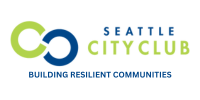In anticipation for our upcoming Civic Cocktail on February 1st, we sat down with Don Shelton, Editor at The Seattle Times, to preview topics we will be discussing with our panel of local journalist.
Q: What drew you to participate in this Seattle CityClub event?
A: My friend and former co-worker Joni Balter made me an offer I couldn’t refuse. Seriously, she asked me to join a panel about Journalism and why it’s more important than ever at a time when fake news is a real (or in this case unreal) thing, and the press is under attack. I definitely wanted to be part of this panel discussion and am really looking forward to it.
Q: What aspect of journalism continues to draw you to the profession?
A: I’m not sure where to begin on this, because Journalism has been my life and what I wanted to do since I became the sports editor at my high-school newspaper, saw Watergate unfold and read “All the President’s Men.” Telling the truth, holding those in power accountable and telling compelling stories are what drew me to Journalism and what keeps me there. There is nothing more important than a story that uncovers a hidden truth and holds someone accountable who has abused power. That kind of Journalism is more important than ever.
Q: How will the 2016 Election affect the relationship between the professional media and voters?
A: Excellent question. I think the election and the aftermath has definitely shown how important the media is in holding Trump and Clinton accountable. Trump clearly doesn’t believe in the importance of the press and reduces his answers to 10-second sound bites or 140-character Tweets, eschewing the normal protocol of press conferences and briefings. He lumps the media together as fake or not fake, and has all but declared war on those who question him and try to hold him accountable. It will be an interesting ride for the next four years. One example came in his Jan. 11 press conference, when he called out Buzz Feed and a sstory, then refused to answer a question from a legitimate news agency, then accused it of doing fake news. Astonishing. Buckle up. Yet the media have some soul searching to do. We didn’t take Trump seriously as a presidential candidate, and got one of the biggest stories in American history wrong. Almost no one predicted it. How could we be so wrong? We need to make sure we understand that so it doesn’t happen again.
Q: How do you tackle the challenge of “fake news” in your reporting?
A: By doing what we’ve always done – report and edit our stories thoroughly and ensure that the facts are indisputable and clear, by clearly labeling opinion and commentary (so that it isn’t read the same as news) and by being as transparent as possible about what we do and how we do it. The media have done a bad job of being transparent, of pulling back the curtain, and we need to do a better job of telling readers how we go about doing our jobs.
